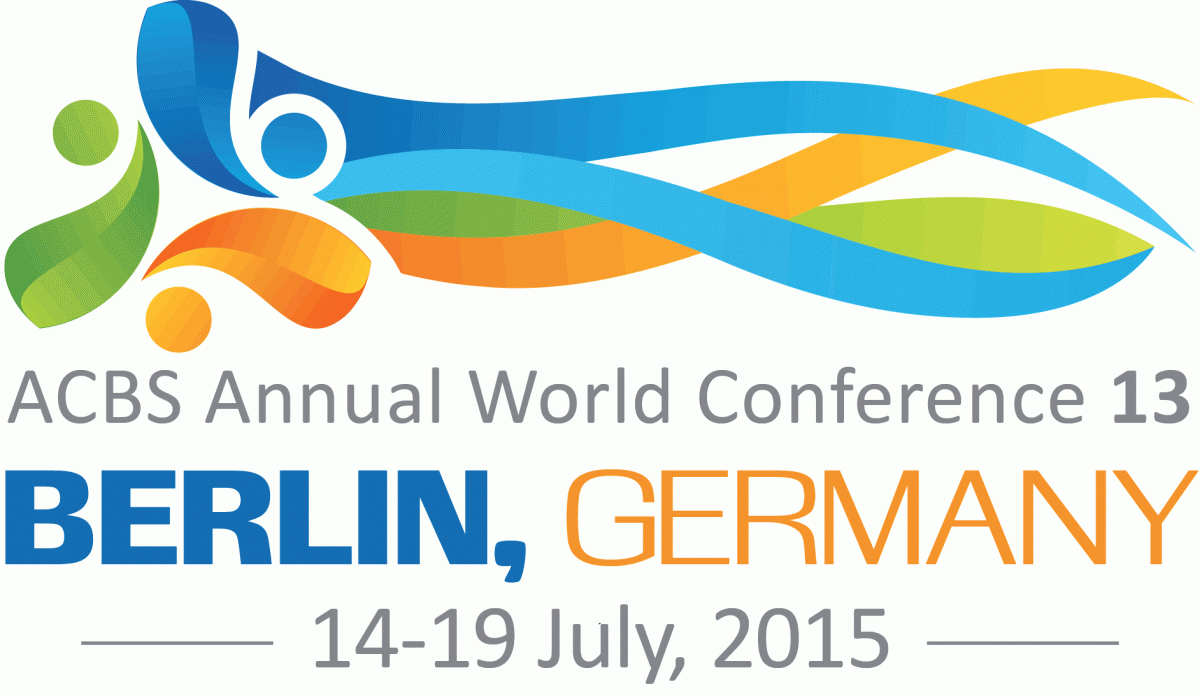Mrs. Hannah Bockarie has a Bachelor of Science in Project management and Development studies from Wohprag Biblical University Nigeria, a teacher’s certificate from the Makeni Teachers College in Sierra Leone, and a certificate as a trainer in Social Mobilization from the UK AID Team. She is trained as a counsellor since 2004 and started working as a counsellor supervisor with Medicine’s San Fortier’s for five years with the therapeutic focus victims of armed conflict. She did multiple Trainings in Acceptance and Commitment Therapy (ACT), attended the Association for Contextual Behavioral Science (ACBS) World Congresses in Italy and United States of America, and she is co-leading and leading ACT workshops since 2011.
She facilitated the establishment of commit and act Center in Sierra Leone to support families and individual suffering from stress, anger and fear. Hannah has been outstanding among Sierra Leone women to break the Ebola transmission by formation of psychosocial counseling groups. These groups of local teachers, social workers, etc., were incredibly courageous in going to quarantine homes to provide counseling sessions for people, and they did community sensitization sessions on Ebola control and prevention. Hannah also provided training for teachers using the ACT/PROSOCIAL approach, to educate community stake holders using this approach to cause reliable behavior change in their villages. This training reached out to about 67,000 community members in the hard to reach rural areas in 94 sections in Bo District, which was one of the first districts in the country declared Ebola free. She was recognized and certified as the most outstanding psychosocial organizational Director in the district by the Bo district Council and by the District Emergency Response Centre in Bo. Her work has motivated many individuals and organizations in the Sierra Leone and they are requesting for partnership.
 Martin Bohus, M.D.
Martin Bohus, M.D.
Martin Bohus holds the chair of Psychosomatic Medicine and Psychotherapy, Heidelberg University and is Medical Director at the Central Institute of Mental Health, Mannheim.
He received his M.D. at Freiburg Medical School and did his residency in Psychiatry and Neurology at Freiburg Medical School. He made his specialty in Psychiatry and Psychotherapy and in Psychosomatic Medicine.
He received several awards for psychotherapy research. He is board member of the German Association of Psychiatry DGPPN, President of the European Society for the Studies of Personality Disorders (ESSPD), President of the German Association for DBT and Co-chair of the International Strategic Planning Meeting for Dialectical Behavior Therapy (SPM). He was president and initiator of the 1st International Congress on Borderline Personality Disorder, Berlin 2010 and since 2012 he is spokesperson of the Clinical Research Unit “Mechanisms of Disturbed Emotion Processing in BPD”.
He has published in highly ranked international journals like Nature, The Lancet, Archives of General Psychiatry; Biological Psychiatry, Blood, and others. Currently he has published more than 250 articles and book chapters.
His training and experience in both, neurobiology and psychotherapy research helps him to bridge the gap between these fields and provides cutting edge translational research.
JoAnne Dahl, Ph.D.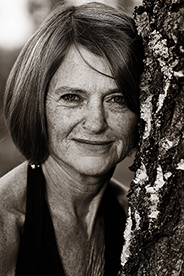
JoAnne Dahl, Ph.D, Professor of Psychology at Uppsala University in Uppsala Sweden and licensed Clinical psychologist and psychotherapist. JoAnne is an internationally recognised ACT Trainer and conducts ACT workshops around the world. Her areas of ACT research include applications primarily with chronic illness such as Chronic pain, epilepsy, asthma, obesity. JoAnne has spent considerable time developing and implementing ACT programs in the developing countries for war victims suffering from trauma, as well as epilepsy and HIV. JoAnne is lead author of ACT books in treatment of chronic pain, epilepsy, love and intimate relationships and weight reduction. She also has 30 scientific articles concerning development and assessment ACT applications. JoAnne is the present chairman of Swedish Chapter of ACBS.
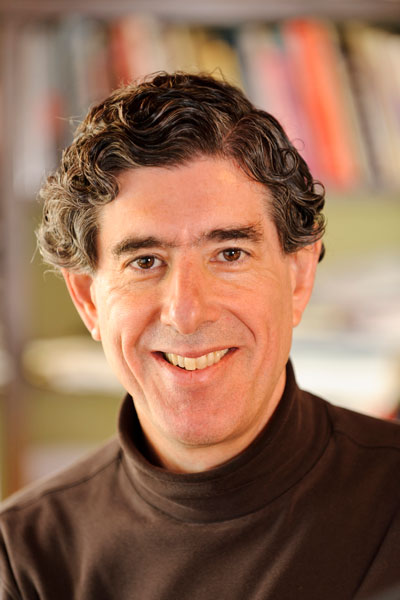
Richard J. Davidson, Ph.D.
William James and Vilas Research Professor of Psychology and Psychiatry, Director of the Waisman Laboratory for Brain Imaging and Behavior, and Founder of the Center for Investigating Healthy Minds at the Waisman Center, University of Wisconsin-Madison.
He received his Ph.D. from Harvard University in Psychology and has been at Wisconsin since 1984. He has published more than 320 articles, numerous chapters and reviews and edited 14 books. He is the author (with Sharon Begley) of The Emotional Life of Your Brain published by Penguin in 2012.
He is the recipient of numerous awards for his research including a National Institute of Mental Health Research Scientist Award, a MERIT Award from NIMH, an Established Investigator Award from the National Alliance for Research in Schizophrenia and Affective Disorders (NARSAD), a Distinguished Investigator Award from NARSAD, the William James Fellow Award from the American Psychological Society, and the Hilldale Award from the University of Wisconsin-Madison. He was the year 2000 recipient of the most distinguished award for science given by the American Psychological Association –the Distinguished Scientific Contribution Award. He was the Founding Co-Editor of the new American Psychological Association journal EMOTION and is Past-President of the Society for Research in Psychopathology and of the Society for Psychophysiological Research.
He has been a member of the Mind and Life Institute’s Board of Directors since 1991. In 2003 he was elected to the American Academy of Arts and Sciences and in 2004 he was elected to the Wisconsin Academy of Sciences, Arts and Letters. He was named one of the 100 most influential people in the world by Time Magazine in 2006. In 2006 he was also awarded the first Mani Bhaumik Award by UCLA for advancing the understanding of the brain and conscious mind in healing. Madison Magazine named him Person of the Year in 2007. In 2008, he founded the Center for Investigating Healthy Minds, a research center dedicated to the study of positive qualities, such as kindness and compassion. In 2011, he was given the Paul D. MacLean Award for Outstanding Neuroscience Research in Psychosomatic Medicine. He serves on the Scientific Advisory Board at the Max Planck Institute for Human Cognitive and Brain Sciences in Leipzig from 2011-2017 and as Chair of the Psychology section of the American Association for the Advancement of Science from 2011-2013. In 2013 he received the NYU College of Arts and Science Alumni Achievement Award. Member of the World Economic Forum's Global Agenda Council on Mental Health for 2014-2016.
His research is broadly focused on the neural bases of emotion and emotional style and methods to promote human flourishing including meditation and related contemplative practices. His studies have included persons of all ages from birth though old age and have also included individuals with disorders of emotion such as mood and anxiety disorders and autism, as well as expert meditation practitioners with tens of thousands of hours of experience. His research uses a wide range of methods including different varieties of MRI, positron emission tomography, electroencephalography and modern genetic and epigenetic methods.
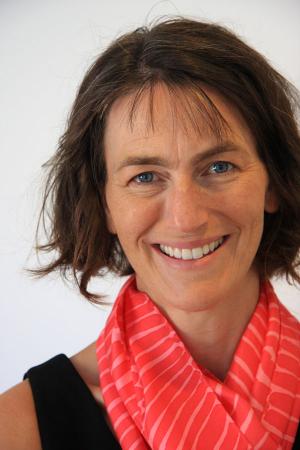 Barbara Fredrickson, Ph.D.
Barbara Fredrickson, Ph.D.
Dr. Barbara L. Fredrickson is Kenan Distinguished Professor of Psychology and Director of the Positive Emotions and Psychophysiology Lab (a.k.a. PEP Lab) at the University of North Carolina at Chapel Hill. She received her Ph.D. in psychology from Stanford University, with a minor in organizational behavior. She is one of the most highly-cited scholars in psychology and her research on positive emotions and lifestyle change is funded by the U.S. National Institutes of Health (NCI, NIA, NCCAM, NIMH, NINR). Professor Fredrickson has published more than 100 peer-reviewed articles and book chapters and her general audience books, Positivity (2009, Crown, www.PositivityRatio.com) and more recently, Love 2.0 (2013, Penguin, www.PositivityResonance.com) have been translated into more than a dozen languages. She is currently President of the International Positive Psychology Association (www.IPPAnetwork.org). Her scholarly contributions have been recognized with numerous honors, including the inaugural Templeton Prize in Positive Psychology from the American Psychological Association, the Career Trajectory Award from the Society of Experimental Social Psychology, and the inaugural Christopher Peterson Gold Medal from the International Positive Psychology Association. In 2014, she was identified as the 13th most influential psychologist alive today contributing to counseling psychology. Her work has influenced scholars and practitioners worldwide, within education, business, healthcare, the military, and beyond, and she is regularly invited to give keynotes nationally and internationally.
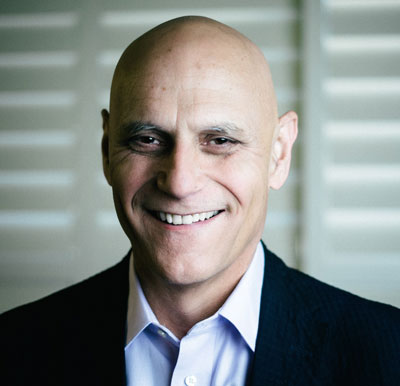
Steven C. Hayes, Ph.D.
Steve is Nevada Foundation Professor at the Department of Psychology at the University of Nevada. An author of 37 books and 535 scientific articles, his career has focused on an analysis of the nature of human language and cognition and the application of this to the understanding and alleviation of human suffering. Dr. Hayes has been President of Division 25 of the APA, of the American Association of Applied and Preventive Psychology, the Association for Contextual Behavioral Science, and of the Association for Behavioral and Cognitive Therapies. He was the first Secretary-Treasurer of the Association for Psychological Science, which he helped form and has served a 5 year term on the National Advisory Council for Drug Abuse in the National Institutes of Health. In 1992 he was listed by the Institute for Scientific Information as the 30th “highest impact” psychologist in the world. His work has been recognized by several awards including the Exemplary Contributions to Basic Behavioral Research and Its Applications from Division 25 of APA, the Impact of Science on Application award from the Society for the Advancement of Behavior Analysis, and the Lifetime Achievement Award from the Association for Behavioral and Cognitive Therapies.
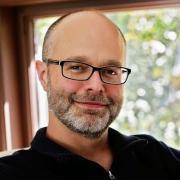 Jason Luoma, Ph.D., is a clinical psychologist and director of the Portland Psychotherapy Clinic, Research, and Training Center in Portland, Oregon, a unique research and training clinic where all profits go to fund scientific research. In addition to directing the center and conducting research, he maintains a clinical practice focused on helping people who suffer from chronic shame, self-criticism, and low self-esteem. Dr. Luoma has been studying ACT for about 15 years and spent 4 years at the University of Nevada, Reno, studying ACT with its creator, Dr. Steven Hayes. Dr. Luoma is an internationally recognized trainer in ACT, former chair of the ACT Training Committee, and current president of the Association for Contextual Behavioral Science. He is lead author of Learning Acceptance and Commitment Therapy, one of the best-selling ACT books for therapists. He has conducted ACT-related research for over a decade and has over 30 publications related to ACT, including research on psychotherapy training and dissemination.
Jason Luoma, Ph.D., is a clinical psychologist and director of the Portland Psychotherapy Clinic, Research, and Training Center in Portland, Oregon, a unique research and training clinic where all profits go to fund scientific research. In addition to directing the center and conducting research, he maintains a clinical practice focused on helping people who suffer from chronic shame, self-criticism, and low self-esteem. Dr. Luoma has been studying ACT for about 15 years and spent 4 years at the University of Nevada, Reno, studying ACT with its creator, Dr. Steven Hayes. Dr. Luoma is an internationally recognized trainer in ACT, former chair of the ACT Training Committee, and current president of the Association for Contextual Behavioral Science. He is lead author of Learning Acceptance and Commitment Therapy, one of the best-selling ACT books for therapists. He has conducted ACT-related research for over a decade and has over 30 publications related to ACT, including research on psychotherapy training and dissemination.
Lance McCracken, Ph.D.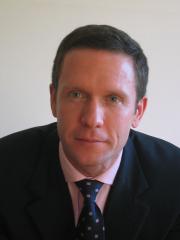
Lance McCracken is Professor of Behavioural Medicine at King’s College London, and he is active in clinical services at INPUT Pain Management at Guys' and St. Thomas' Hospitals NHS Foundation Trust, London. His primary research interests are in chronic pain management. Most of this research is applied clinic-based research focused on the development of psychological and interdisciplinary treatment methods. The primary strategy in this work is to explicitly combine outcome analyses with theoretically-based treatment process and moderator analyses. The guiding model for this research sits within the broadly Cognitive Behavioural approaches and can be called Contextual CBT. Contextual CBT is a generic term that reflects an emphasis shared across a number of different current therapies, including those that focus on exposure-based methods, mindfulness, acceptance, values, and a functional view of psychological experiences, among other qualities. The more specific model guiding his research includes psychological flexibility, the primary treatment process within Acceptance and Commitment Therapy (ACT).
Vikram Patel, FMedSci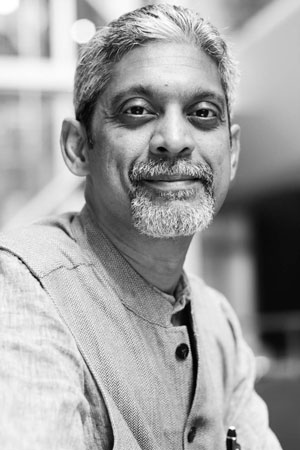
Vikram Patel is affiliated with the Centre for Global Mental Health, London School of Hygiene and Tropical Medicine (LSHTM), and is the Co-Director of the Centre for Chronic Conditions and Injuries, Public Health Foundation of India. He is a psychiatrist with a primary interest in global mental health and is supported by a Wellcome Trust Senior Research Fellowship in Clinical Science. Vikram is also the co-founder of Sangath; an Indian NGO which has pioneered task-sharing experiments in the areas of child development, adolescent health and mental health.
In 2011, Vikram was appointed to two Government of India health committees, the Mental Health Policy Group (which drafted India’s first national mental health policy, launched on October 10th, 2014) and the National Rural Health Mission ASHA Mentoring Group. He also serves on three WHO Committees, and he was co-chair of the Scientific Advisory Board of the Grand Challenges in Global Mental Health. Vikram serves as the Lead editor of the Disease Control Priorities Network volume on mental, neurological and substance use disorders. He is also Lead editor of the Lancet series on global mental health (2007 and 2011), the PLoS Medicine series on packages of care for mental disorders (2009) and the series on Global Mental Health Practice (2012 onwards) and co-editor of the IJE series on psychiatric epidemiology and global mental health (2014). In addition, Vikram is the editor of two new OUP textbooks on global mental health (Global Mental Health: Principles and Practice, 2013; and Global Mental Health Trials, 2014). In 2015 Vikram was named on of the 100 most influential people in the world by Time.
Rikard Wicksell, Ph.D.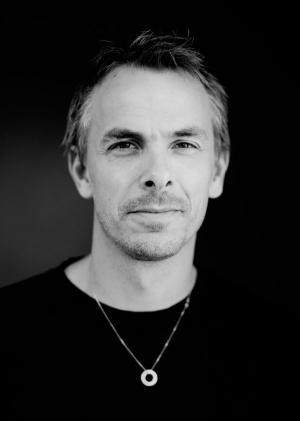
Rikard Wicksell is a psychologist, clinical researcher, and head of the Behavior Medicine Pain Treatment Service (BMPTS) at the Centre for Pain Medicine, Karolinska University Hospital in Stockholm, Sweden. The BMPTS is today among the larger clinics for behavior medicine in Sweden, and one of the main ACT-oriented research clinics in the world. His research has primarily been related to the application of ACT for patients with chronic debilitating pain and related conditions, both adult and pediatric patients. Several studies have focused on evaluating the change processes in ACT. Recent research has addressed the correspondence between the ACT-model and neuroscience, with studies evaluating the role and relevance of e.g. brain activity patterns for treatment outcome. He is currently involved in the development and evaluation of internet-delivered ACT. Also, a series of studies are being conducted to explore the relation between pain and neuropsychiatric symptoms, as well as the correspondence between psychological flexiblity and executive functions. He has authored numerous scientific articles and book chapters on ACT and pain. His book, To live with pain - ACT as a Strategy for Life, was published in 2014. He has served on the ACBS Board. He is also one of the founders, and the first president, of the Swedish ACBS chapter, and is currently the chair of the ACBS research committee.

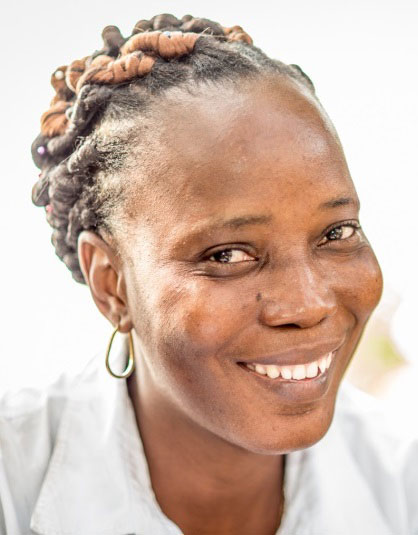 Hannah Bockarie
Hannah Bockarie